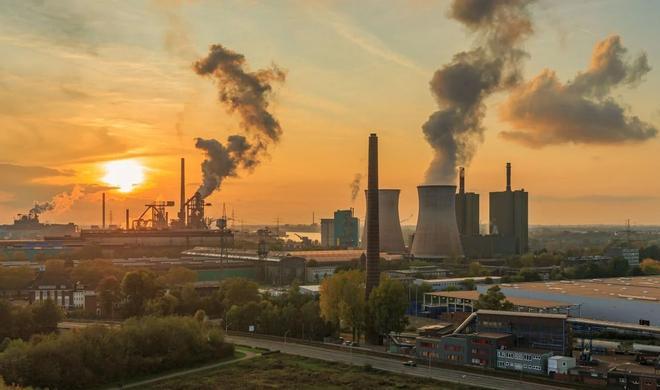A scientific study advances the deadline in which the maximum peak of greenhouse gases will be reached, thanks to the accelerated deployment of renewables and electric cars
After many decades of uninterrupted increases in greenhouse gas emissions, scientists do not rule out that 2024 could be the first year in which the curve finally begins to fall. It would be a historic moment, the first step towards the ‘cure’ of the main disease that the planet suffers: global warming. Scientists from the University of Exeter (United Kingdom) have just published a report in which they predict that 2024 will indeed be the first year in which emissions into the atmosphere decrease.
According to New Scientist magazine, CO2 emissions and the greenhouse effect have been constantly increasing on Earth since the Industrial Revolution, and the year 2023 was no exception, as emissions increased by 1% compared to the previous year, according to highlights the Global Carbon Budget, compiled by Pierre Friedlingstein at the University of Exeter.

Evolution of emissions from the pre-industrial era to 2022 /GLOBAL CARBON ATLAS
Now, things may change in 2024, according to these scientists, given the unstoppable advance of renewable energies, which are managing to bend the pernicious CO2 curve. And, despite the fact that the industrialization of the planet is not only stabilizing, but continues to increase, the greater weight of clean energy allows the ‘miracle’ of cutting these emissions without slowing down the economy.
THE KEY ROLE OF CHINA
All forecasts made so far, including those of the International Energy Agency (IEA), indicated that the maximum peak of emissions derived from fossil fuels (oil, gas and coal) would arrive in 2025 and, from there, they would go gradually going down. However, the spectacular performance of renewables and their continued expansion in the industrialized powers (Europe, China and the United States) allow us to bring forward a long-awaited date in a year. Also the progressive deployment of electric cars, which in China reaches really important levels, as in some European countries, is another of the factors that allow 2024 to be placed as a key year. It is the ‘beginning of the end’ of dirty fuels, an end that, however, will not occur overnight.

Global CO2 emissions /GLOBAL CARBON ATLAS
A study published last month by the Helsinki-based Center for Research on Energy and Clean Air (CREA) showed that China’s emissions are poised to peak in 2030, despite In recent times its government has continued to approve the construction of coal-fired power plants to meet its energy needs.
However, its efforts to decarbonize are even greater: CREA’s principal analyst, Lauri Myllyvirta, stated that, taking into account the clean energy power that China has installed, the country’s emissions will probably enter a “structural decline” from of 2024.
The forecasts of other organizations that pointed to a peak in emissions by 2030 now seem to be excessively conservative. Although they were based on a true fact, such as the intention of several oil-producing countries to increase extraction, the truth is that an expansion of renewables is expected that has never been seen before.
The goal agreed at the Dubai climate summit, COP28, is to achieve zero emissions by 2050.
Experts consider it to be the only way to limit global warming to 1.5ºC above pre-industrial levels. This is an objective that will be difficult to achieve (some see it as impossible, even if the emissions have the best performance), but at least there is hope that this limit will not be exceeded too much or, at least, that if it is exceeded it will not be for too much time.
Source: El Periodico
